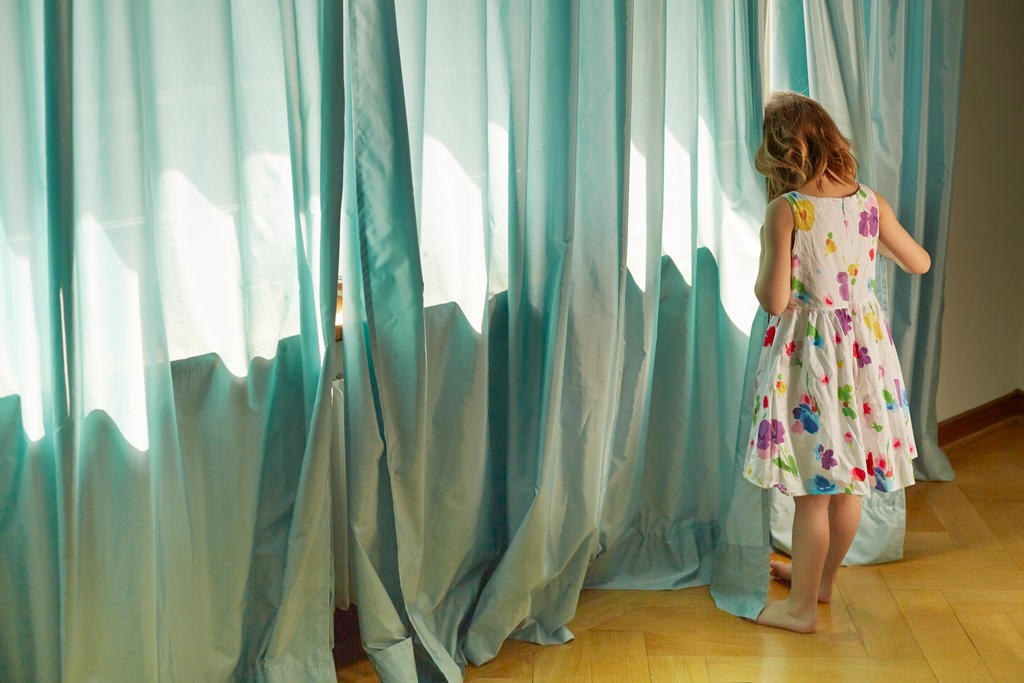Almost 100 teachers are on schools’ black list

There are currently 95 people on a teaching black list in Switzerland, most of them primary school teachers, banned for offences of a sexual nature. But not all cantons are reporting their cases.
Some details of the list, kept by the Conference of Cantonal Directors of EducationExternal link (EDK, in German), were revealed by the SonntagsZeitungExternal link earlier this week, after it battled for eight months for the right to access the text.
The list was launched 15 years ago by the conference and has been obligatory for all cantons – who are in charge of educational matters in Switzerland – since 2008. It is aimed at stopping people with paedophile tendencies, addictions or suffering from a mental illness, who are banned in one canton, from applying for a job in another.
The list shows that one in three teachers are from canton Zurich. Other cantons with double figures were St Gallen (15), Bern (14) and Lucerne (11). In all, 43 of the 95 people on the list are primary school staff, with 24 from secondary level. In almost all the cases, the teaching ban is lifelong.
The list has been made anonymous, with no details of name, age or sex of those involved. The newspaper was able to obtain details from some cantons: in Lucerne and Zurich all the people on the list were men. In canton St Gallen, there were two women.
Sexual nature
“In half of the cases in our canton, it’s to do with child pornography,” Silvia Steiner, cantonal director of education for canton Zurich, and current EDK president, told the newspaper. The other half were mostly sexual offences. “There are also other crimes, or drugs and illnesses, but these are rather rare,” she said.
In canton Zurich, the list had “filtered out” some banned teachers during the application process and had acted as a deterrent for others to apply, Steiner said.
On the criticism that there might be requests for information about teachers who had always behaved correctly, Steiner said it was important that there was “no climate of general suspicion”.
She referred to the case of Jürg Jegge, a former special needs teacher and well-known pedagogical author, who admitted to having sexual contact with his students (charges have since been dropped as most are past the statute of limitations), which caused shockwaves across Switzerland. Steiner said such cases caused upset and alarm, but had to be seen in proportion. “There are 16,000 teachers in canton Zurich and 32 of them are on the list.”
+ Read more about the Jegge case here
But over half of the cantons (14) are not using the list, the newspaper reported, including Vaud in the French-speaking part of Switzerland and the southern Italian-speaking canton of Ticino.
Vaud explained its absence through a technicality. Cantons must report all teachers from whom they have removed their formal teaching authorisation, but Vaud does not officially have such an authorisation, so it can’t be removed, a cantonal spokesman said. So there has been no legal basis to maintain the list, he said.
Absence
Some cantons, like Valais, maintained that they had not recorded any list-worthy cases. Others, such as Ticino, do not participate in principle, this article said, despite reports of some cases of a sexual nature, of which it gave several examples.
Both Vaud and Ticino said that teachers were subject to strict checks during the hiring process, including looking at their criminal records and whether they had been banned from private and processional contact with children.
The EDK does not comment on individual cantons, but the Federation of Swiss TeachersExternal link, the umbrella organisation for teaching organisations in German-speaking Switzerland, said the list was a very important measure. “But it only works when all the cantons routinely take part,” said director Beat Zemp.
Vaud has in the meantime decided to take part in the list but has yet to establish the legal basis for doing so, the spokesman said. “The will is there,” the spokesman told SonntagsZeitung.

In compliance with the JTI standards
More: SWI swissinfo.ch certified by the Journalism Trust Initiative











You can find an overview of ongoing debates with our journalists here . Please join us!
If you want to start a conversation about a topic raised in this article or want to report factual errors, email us at english@swissinfo.ch.